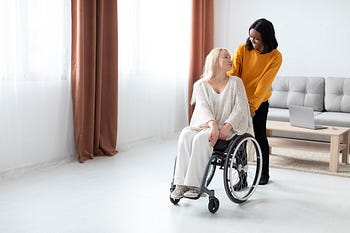
Effective communication is vital in NDIS short-term accommodation to ensure residents receive the support they need. Bridging communication gaps among staff, residents, and stakeholders promotes a collaborative and person-centered approach to care. In this blog post, we’ll explore the importance of clear communication in NDIS short-term accommodation and discuss strategies for enhancing communication processes.
Understanding the Importance:
- Facilitating Understanding: Clear communication fosters mutual understanding among staff and residents, ensuring that everyone is on the same page regarding care needs and preferences.
- Promoting Engagement: Open and transparent communication encourages residents to actively participate in decision-making processes related to their care and accommodation, empowering them to voice their concerns and preferences.
Enhancing Communication Strategies:
- Regular Team Meetings: Scheduled team meetings provide opportunities for staff members to discuss resident care plans, share updates, and address any challenges or concerns collaboratively.
- Utilizing Technology: Leveraging communication technologies, such as digital platforms and mobile applications, enables real-time communication and information sharing among staff members, facilitating seamless coordination of care.
Improving Resident Engagement:
- Individualized Communication Plans: Developing individualized communication plans for residents ensures that their unique communication needs and preferences are accommodated, fostering a supportive and inclusive environment.
- Accessible Communication Channels: Offering multiple communication channels, including verbal, written, and visual formats, ensures that residents can effectively communicate their needs and preferences regardless of their communication abilities.
Addressing Language and Cultural Barriers:
- Interpreter Services: Providing access to interpreter services facilitates communication between staff and residents with limited English proficiency or those from diverse cultural backgrounds, ensuring that language barriers are overcome.
- Cultural Sensitivity Training: Offering cultural sensitivity training for staff members enhances their awareness and understanding of cultural differences, enabling them to provide culturally competent care and communication.
Fostering a Culture of Openness:
- Encouraging Feedback: Creating a culture that values feedback encourages residents and staff members to share their thoughts, concerns, and suggestions openly, fostering continuous improvement and innovation.
- Resolving Conflict Promptly: Addressing communication breakdowns and conflicts promptly and constructively promotes trust and cohesion within the NDIS short-term accommodation setting, preventing escalation and promoting positive relationships.
Clear communication is the cornerstone of effective care delivery and resident satisfaction in NDIS short-term accommodation. By implementing strategies to enhance communication processes, such as regular team meetings, utilizing technology, and promoting resident engagement, accommodation providers can bridge communication gaps and foster a supportive and inclusive environment for all residents.
If you’re seeking NDIS short-term accommodation that prioritizes clear communication and resident engagement, contact us today. Our team is committed to fostering open communication and collaboration to ensure that residents receive the support they need to thrive.

No comments:
Post a Comment